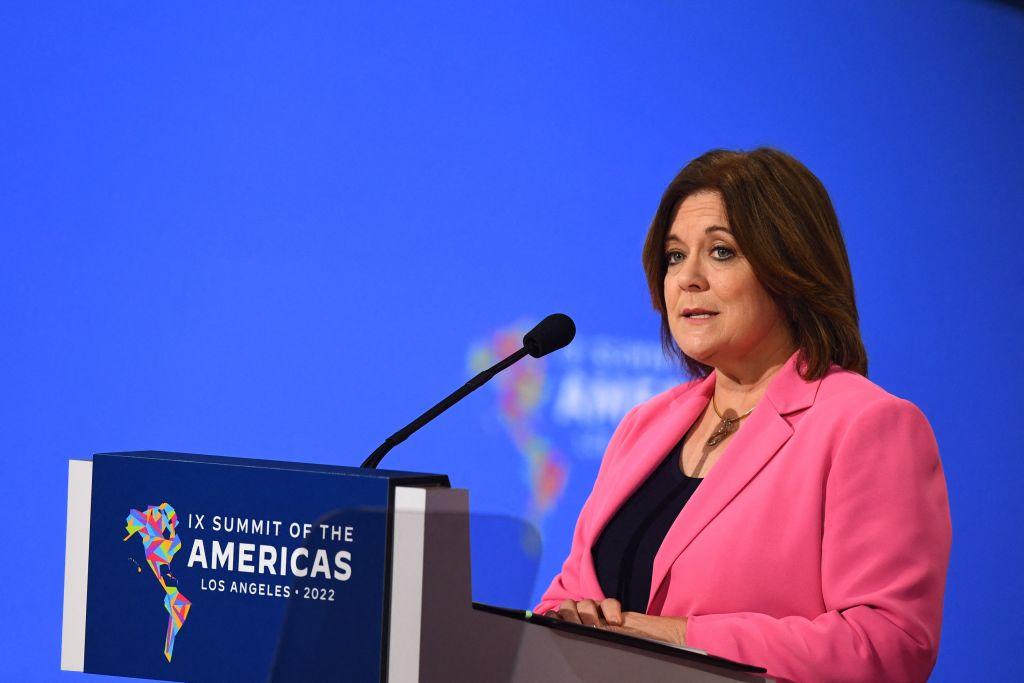U.S. businesses are dissatisfied with Washington’s attempts to overregulate firms and its inability to deal effectively with issues such as the border crisis and inflation, the head of the U.S. Chamber of Commerce recently said, while highlighting the dangers of foreign regulation.
“There is a long and meaningful list of policy priorities that our lawmakers should tackle, things that only they can do. There is an equally long list for what government shouldn’t do—and overregulation is at the top. It is not the role of government to direct the behavior of business, redistribute power in our economy, or undermine the competition that fuels free enterprise,” Chamber CEO Suzanne Clark said during an event on Jan. 12.





